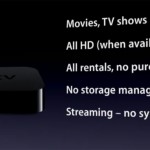Weekly News Roundup (5 September 2010)
Good news everyone! Another edition of the WNR is ready, for you to enjoy. Actually, since I write the intro first, the WNR isn’t ready at the exact time I’m writing this. And I’m not sure why I started with a Futurama inspired phrase, except perhaps for the fact that I’ve been watching Futurama lately. I kind of feel cheated having previously purchased the *entire* Futurama series on DVD, only for the show to be revived. Let’s just hope they don’t revive Arrested Development as well, to ruin my *complete* collection. It’s pretty news lite this week, but it won’t mean I will write less crap. You’ve been warned!

Let’s start with copyright news, like I always have with the 150+ WNRs I’ve done so far. Copyright trolling is a relatively new term that’s been coined to describe the act of suing for copyright for profit, much like how patent trolls secure patents with no product, in the hope of one day profiting.
The latest trend in copyright trolling is in the dying newspaper business, and I’ve reported on the sue-for-settlement activities conducted by Righthaven for Stephens Media, owner of the Las Vegas Review-Journal amongst other papers. But it looks like another newspaper chain has signed up, with Arkansas based WEHCO Media also joining the trolling activities. These cases usually involve suing blogs and aggregators for posting full versions of articles published by the newspaper chains. Now some will argue that there’s nothing wrong with this, and as someone who has had their articles copy/pasted without permission many times, I kind of agree. But as someone who also runs websites that contain user generated content, it’s hard to ensure your users don’t also break the rules by copying/pasting articles. The DMCA safe harbor provisions should protect website owners in these kind of situations, as long as they have clear, enforceable rules in regards to copyright, but it appears the DMCA is not offering protection to those being sued, unless they go to court to claim safe harbor, as their own expense. And while I agree that it’s important to protect copyright, the attempt at monetization here seems a bit too obvious – it’s almost as if this has become a new source of income for the struggling newspaper industry. This blog isn’t well suited to discuss how to save the newspaper business, but with the iPad and similar devices, there does exist a small window of opportunity for innovation. If newspapers can deliver an unique product for devices like the iPad, based on a paid subscription service, then there is potential there. Not trying to do their work for them, not that I have the ability anyway, but perhaps by making news more interactive, with real feedback (polls, text/video comments, user video updates), by providing more in depth coverage, more multimedia coverage – they’re all directions to look at. It’s certainly a better long term solution than copyright trolling.
And an update on the other infamous copyright troll, the US Copyright Group are moving ahead with their The Hurt Locker cases, with the first users receiving notices via their ISP after the USCG’s subpoena request to ISP Qwest. So for those hoping the USCG would quit after finding more resistance than first expected will be disappointed. What I fear, and I’ve covered this before, is that copyright trolling will be used as an excuse to bring in even harsher copyright laws. After all, three-strikes is better than the one-strike system that copyright trolls are relying on, right? This has already happened over in the UK, after all. And just like overseas, taking the same approach and suing for downloading pirated porn has arrived, and it is expected to bring in an even higher ROI. I mean when accused with downloading a movie called “Shemales From Hell”, even if you knew you didn’t download this file, would you dare to challenge this in court? Of course not, and people will pay up almost every time, and that’s exactly what the law firms are counting on. Is it legal blackmail? Does it sound like a scam? But it is legal, and expect more firms to take up this potential lucrative practice.
Speaking of scams, if I told you I could offer you free unlimited music download from all the major labels for only $25 per month, and since this is a new service, I’m waiving the $25 per month fee for a limited time, and all I need is your credit card number, then would you trust me? I know I wouldn’t trust myself, thanks largely to the Scrooge like pricing strategy of the major labels, ironically. It just sounds to good to be true, and so it probably isn’t true. So beware of sites offering too good to be true offers, because they may be offering illegal services, or worse, offering no services at all.

Moving on quickly to HD/3D news, there are a couple of important announcements regarding Blu-ray 3D. But before we get to that, why did the Blu-ray people decide to call this thing “Blu-ray 3D” and not “3D Blu-ray”? Should it be at least “Blu-ray: 3D” or “Blu-ray in 3D”.
Anyway, the first announcement is that Avatar will be released on “3D Blu-ray” in December. But only to those with Panasonic 3D TVs. It’s a shame such a high profile title is being released as a manufacturer exclusive title, but with the close links between Panasonic and the movie, this was never a big surprise. The details are still not available, so we don’t even know if the title will be free for all buyers of Panasonic 3D TV’s, or only offered to those that buy a TV during the promotional period. Those who can’t wait and don’t have Panasonic equipment, then eBay may be your friend. Otherwise, expect the general release 3D Blu-ray version of Avatar sometime in early 2011, maybe in April, exactly a year after the 2D Blu-ray release. Or sooner.
The second announcement is that the eagerly awaited 3D Blu-ray firmware update for the PS3 won’t be coming this month as promised earlier, but should still be here before the end of next month. This is kind of a big deal for 3D Blu-ray, because it would at least guarantee that there will now be millions of 3D capable Blu-ray players in people’s homes, and that may help people make up their minds when buying their next TV (whether it should be a 2D only or 3D). But it would be a bigger deal if more movies are made available on 3D Blu-ray, because the current selection is pretty thin.
Apple announced new iPods recently, but buried amongst the announcements was a new updated Apple TV. Dubbed Apple’s pet project, the Apple TV has not received the same amount of attention and marketing as their other devices. But the new Apple TV is slightly controversial, as Apple is asking people to change the way they enjoy movies and TV shows this time – by renting, and not buying. Apple plans to do this via the cloud, which is just a fancy way of saying that everything is online, and nothing gets downloaded. But I have serious doubts about such a service taking off because of a few fundamental issues. One, people still like to buy movies and TV shows, as people do re-watch their favourite movies or TV shows, and most don’t want to pay every time they do it. Two, not everyone has an Internet connection capable of streaming the HD video that Apple is promising, not without some buffering, which then becomes just downloading (so not very “cloudy” at all). And three, Apple’s argument that people don’t want to manage large video and music collections simply doesn’t stack up, to me at least, because people do that all the time. And unless Apple offers the ability to store our own sourced content in the cloud (whether it’s ripped from CDs, or purchased from other stores), then there will still be the need to manage a file collection of some sort. But as long as you only use Apple products and services, you’ll be fine, and that’s what Apple is counting on, I suppose – interoperability can take a back seat.
But the biggest problem I have with this approach is still number one, the fact that you can’t buy movies. Just because content is stored in the cloud, doesn’t mean you can’t buy them. The only difference is that with purchased content, you don’t have to pay every time you access it in the cloud, but by providing such a service, Apple would have to charge more per music/movie file made available for purchase on the cloud, compared to a download purchase. And when faced with the choice, people may still just go for the cheaper download and choose to invest a bit more time managing their own file collection locally (or via a third party cloud hosting service). And that’s not what Apple wants.
So cloud storage is great, but as long as the fundamental problems gets solved first, specifically people’s average Internet connection speeds, DRM/interoperability, and please please allow people to purchase stuff.
![]()
And finally in gaming, more news on the PS Jailbreak device, which last week say legal action in the Australian courts which led to a ban on the device.
This week though featured news that Sony won’t have liked, in that someone has managed to extract the software from the PS Jailbreak device and have made it open source. Dubbed PSGroove, the open source version won’t allow pirated games to be played to avoid too much legal trouble (although there will still be plenty of trouble, I can guarantee it), but it does allow unsigned code to run on the PS3, in other words, homebrew! The PS Jailbreak exploit is based on tricking the PS3 into thinking that it’s a USB hub of some kind, and an overflow exploit to inject code to make it all work. The nature of this exploit means that it’s easy (but not trivial) to build your own USB device, or even use your existing USB device to do it (like smartphones, for example). But what is trivial perhaps is Sony’s “fix” for this exploit, so this exploit is unlikely to work on firmware beyond version 3.41.
And so we come to the end of another issue of the WNR. Hope you enjoyed this edition as much as I enjoyed writing it.
Except I didn’t enjoy writing it 🙂
See you next week.


